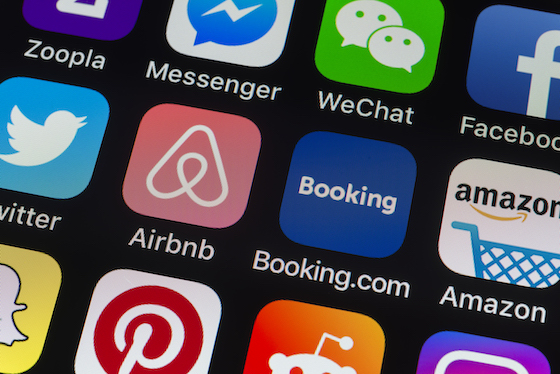Following an acquisition and major investment, home-sharing platform Airbnb is starting to play hard and fast with the traditional hotel industry.
With the March acquisition of HotelTonight (last valued at US$463 million in the private market) and subsequent investment in Oyo Hotels & Homes, Airbnb is making moves into the traditional hospitality and has rebranded itself an “end-to-end travel platform.”
“We are investing in creating new businesses that will power our growth over the long-term,” Airbnb’s Clara Liang, general manager, professional hosting, told HOTELS.
“When we got started, we saw how people opening their homes could make guests feel like locals,” Liang continued. “We also saw hospitality entrepreneurs — property managers, boutique hotels, real estate professionals, and others — use our platform to provide that same unique, authentic and local feeling. As we grow, the types of accommodations guests are expecting and the needs of our hosts are changing.”
According to Liang, the company’s core business, Homes, has grown from around 20,000 listings in 2009 to more than 6 million. Additionally, Airbnb Experiences launched in 2016 with 500 experiences in 12 cities and today offers 25,000 in 500 cities.
“We’re investing in bringing more hospitality entrepreneurs, boutique hotel and B&B owners, to the platform even as we continue to aggressively invest in our core hosts,” she said.
Will Airbnb’s relationship with hotels evolve now that it has HotelTonight as an asset?
“With the HotelTonight team leading the way, under the leadership of (HotelTonight CEO) Sam Shank, Airbnb’s work with hotels will continue to expand as we introduce new product offerings, properties, and ways to discover and book,” said Cameron Houser, program manager for the Hotels group at Airbnb.

The acquisition is part of an industrywide consolidation as the major brands add products and geographic locations to offer one-stop shopping for travelers and build customer loyalty.
“It’s about adding more dots on the map,” said Michael Bellisario, a hospitality industry analyst at Robert W. Baird & Co. “There’s an arms race for growth and scale.”
Airbnb sees the invitation of more traditional hotel players into the space as a win-win for all involved. For guests, hospitality entrepreneurs bring more choices for stays on Airbnb; for hosts, Airbnb provides scale and new travel audiences to grow their businesses.
Today, more travelers search for Airbnb than any other hospitality brand, and nine in 10 guests who book a hotel or B&B on Airbnb come back to stay in a home, according to Airbnb.
Indeed, the diversification could make Airbnb more valuable as it prepares for an IPO, said Bjorn Hanson, a professor at New York University’s Tisch Center for Hospitality and Tourism. “They stay close to their line of business but add revenue.”
Airbnb wouldn’t comment on how new resources from its expected IPO might be used to make further inroads into Airbnb’s hotel distribution network beyond HotelTonight.
But the company did speak to the launch of its new foray into transportation and how that fits in with its new vision of self.
“We’re not interested in building our own airline or creating just another place on the Internet where you can buy a plane ticket — we’re exploring a broad array of ideas and will focus on building partnerships and services that make travel seamless while delivering the kind of people-to-people hospitality Airbnb is known for around the world,” said Liang.
In addition to the HotelTonight acquisition in April, Airbnb invested a reported several hundred million dollars in India’s largest hospitality company, Oyo Hotels & Homes. The collaboration is expected to see at least a portion of Oyo’s portfolio listed on Airbnb. With over 10,000 villas and apartments across India and Dubai, Oyo’s biggest urban home management business could be the best opportunity here for Airbnb.
The deal is also expected to give Airbnb a greater presence in the India and China hotel business and book more travelers who prefer hotels to residential stays.
“Emerging markets like India and China are some of Airbnb’s fastest-growing, with our growth increasingly powered by tourism to and from these markets,” says Liang. “In many of these markets, OYO is empowering local hospitality entrepreneurs to provide more options to more travelers.”
“A large bulk of the rooms that Oyo currently operates in are in the apartments and homes space, and this is very similar to the model that Airbnb uses, and therefore I see instantly some synergies between the two, as historically one has been very budget-focused. I see Airbnb being more leisure-driven and at a higher price point,” Manav Thadani, founder of Indian consultancy Hotelivate, told HOTELS. “Therefore, this investment, and more importantly, the opportunity to buy on each other’s platforms, is perhaps a big win for the customers of the two companies.”
